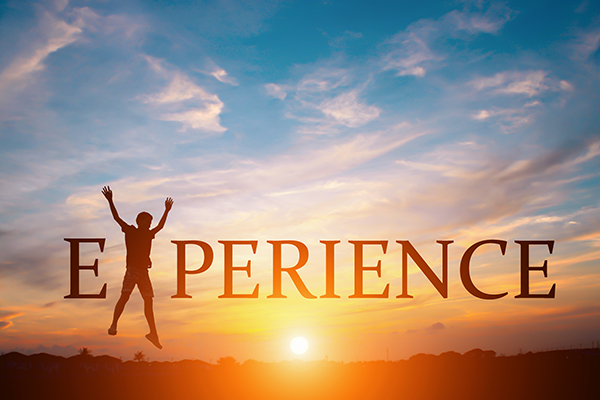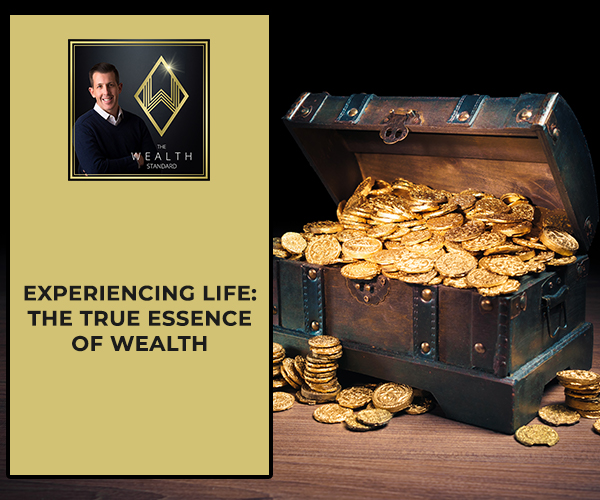Experiencing Life: The True Essence Of Wealth

We may have different notions of what it is like to experience wealth, but the reality is that experience in itself is wealth. It depends on how present you are to capture the full essence of that experience. Whether or not you have achieved the monetary value that you would associate with financial abundance, true wealth lies in your ability to savor the daily experience of life, to be present in everything you do. In this episode, Patrick Donohoe reminds us that life is short and can even be shorter than we imagine it to be. Why wait to celebrate the wealth that you already have? Join in and participate in Patrick’s two-part challenge that will help you grasp the true meaning of wealth.
—
Watch the episode here:
Listen to the podcast here:
Experiencing Life: The True Essence Of Wealth
I’m excited to be with you. I have a short one for you. It’s going to be simple, a couple of points, but I think they’re profound and awesome. Before I get to that, I wanted to thank those of you who responded to my request over the last several episodes to provide feedback in a survey. In response, that’s going to help me to frame and design a digital education course specifically for the blog audience. Your ideas are amazing, how candid you were, how truthful and honest you were, it was humbling. I’m grateful to you. Thank you for doing that. If you have not received the book that I had promised you, it is on its way. Here’s what I’m going to talk about.
The reason why I decided to do this, I’ve been up in my studio doing an event that is for financial advisors. I’m doing it with two of my partners, Todd Langford and Kim Butler. I’m in a familiar set. I did a lot of the episodes previous to COVID-19, but you see some different colors and some different branding. It’s the Prosperity Economics Movement. This is specifically an event for advisors, but there are some things that came up in our event. There are also some topics that have come up in some personal relationships that I have. Surprise, they align with a lot of the things we’ve been discussing and talking about on the show.
Wealth is found in experience and is relative to the degree of our presence in that experience. Click To TweetThat’s why after multiple hours, I think almost ten hours of recording, I’m going to talk about this because I think it’s that important. Hopefully, it resonates with you. It’s simple and profound. Now first make the statement that for me, and in my experience, I’m not sure how it is for you but ultimately people pursue wealth. They pursue material things. They pursue achievement. They pursue success because ultimately they want improved, meaningful relationships. Whether it’s relationships with an intimate partner whether it’s a relationship with children, with parents, with neighbors, with friends. It’s to achieve milestones in levels in order to experience life at a different level, not by yourself, but with those you care about, those you love. Most everything involves a relationship. You’re investing your business whether you own a business or you work for another business, the quality of your life oftentimes is in proportion to the quality of your relationships.
Understanding relationships is powerful. This is an event where we’re talking about providing financial advice to people, but the personal conversations I’ve had are in relation to some family and personal relationships. Here’s what it boils down to. It’s interesting but first, people do not want to change especially if the change is insinuated by somebody else. That’s number one. Number two, people don’t want to be wrong especially when it’s insinuated that they are wrong by somebody else who thinks they’re right. Here’s the fascinating thing. Even though people don’t want to change and even though they don’t want to be wrong, they still want different results, better results.
You’re probably asking yourself the question or thinking through your mind that overly used cliché which is the definition of insanity is doing the same thing but expecting a different result. If a person doesn’t want to change and they don’t want to be wrong, isn’t that doing the same thing they’re already doing if they truly want different results? Yes, but here is an amazing thing. When you insinuate a person needs to change or that they’re wrong, it’s not that they won’t change or that they won’t be willing to do something different, but it’s how the approach occurs. He’s since passed, but we talked last time on the show about Dr. David R. Hawkins and the levels of consciousness that he has, which is a very interesting conversation. In that level of consciousness, it talks about force. In the force component, this is a big part of financial services where you have an ego-driven industry where people are telling each other what to do. It presupposes that they’re telling somebody what to do, it’s because they’re not doing what they’re supposed to do, which means they’re wrong. If they’re not doing what they’re supposed to do, it means they have to change. Instantly you have this battle that occurs when you’re below that line between force and power.
As you look at having a true intention of either giving people advice, knowing that there is this path that they could be on that will give them the results that they want, but yet they don’t want to feel like they’re being told what to do or that they have to change or that they’re wrong. How do you go about doing it if that’s what your genuine intention is? Here’s the epiphany. When you approach people in a neutral or an accepting state, these are two levels that David R. Hawkins talks about on his levels of consciousness. Neutrality and acceptance are you go into a relationship and there’s no judgment. You’re curious about their life, their day, what they’ve learned recently, what they’re doing. You make compliments, you acknowledge them and you have to be genuine and doing this. You can’t fake this, but that’s the idea of neutrality and acceptance.

Wealth Experience: There are ways in which we can show up and really capitalize on the experience of life.
You love a person, accept them for who they are and celebrate that and genuinely want for their happiness. As they experience your non-judgment, as they experience you that you’re curious about them. You’re curious about their life. You’re curious about their interests. You’re curious about their day. If you make a mistake, you are apologetic. You’re humble about it. If that’s where a relationship starts and then you start to discover what a person wants, what new results they want, then they will typically approach you with wanting advice. With wanting direction, with wanting feedback, with wanting perspective, with wanting your opinion.
Without that, I would say sequence, you approach those two primary resistance variables, which is they don’t want to change and they don’t want to be wrong. When you start to establish a meaningful relationship using what I said, those two levels of consciousness, neutrality and acceptance, it’s where people start to be compelled by you, empowered by you and ultimately seek after your perspective and advice. At that stage, you provide insight into, “What are you trying to accomplish? What do you want?” You provide guidance at that point.
It’s an interesting dynamic. I want you to think about some things that you do in your life where you may have the right intention of telling your kids what to do, tell your neighbor what to do. You see the path that they’re on and you want them to have the results that they want, but yet there’s resistance to what your opinion and feedback are unless the dynamic of the relationship is neutrality and acceptance. Try that on for size. It’s something I’ve learned probably a decade ago, but because human nature is designed, especially in males we’re designed to solve problems, especially when it comes to relationships we have with the opposite sex females who sometimes are not necessarily wired the same way.
I hope I don’t go down a bad path here and say some politically incorrect things. I’ll speak specifically to my relationship with my wife. When my wife has challenges and she’s facing a problem, when I go in there and solve it and then say, “We’ll do this or do this,” it immediately creates conflict. When I go in with a spirit of listening and she downloads, talks and she gets things off that are pent up, I realized over the years that she doesn’t want solutions. She wants me to care, for me to be there. Even though every fabric of my being is a solution, it’s not necessarily what she wants. That’s a totally different conversation as far as your intimate relationships are concerned.
What I wanted you to get from this is I’ll summarize. Number one, relationships make the world go round. Ultimately, it’s what we all want. We want more meaning and more quality to those relationships that improve the quality of our lives. That’s business, that’s investing, literally everything. When we insinuate, when our energy, questions, mannerisms, state makes a person wrong or that they have to change something, the guard goes up. It’s like an instant force field. The idea is to get the guard down for them to be open, enrolled, the state of neutrality whether it’s the statements you make, how you answer questions, the energy of acceptance and neutrality is powerful.
As you approach relationships that way, you don’t judge, you listen. You try to understand, not solve. It is going to create an environment for that relationship to grow. Ultimately, you could have all the solutions. If you approach it the wrong way, people resist it. If you approach it in a strategic way, people will embrace it and love you for it. I hope you learned something from this episode. I appreciate all the support. It means a ton to me. Share it with friends, neighbors and family. I would love nothing more than that. That’s it. We will see you next time. Go out there and create some value for yourself and for others. Take care.
Important Links:
- Show – past episode
Love the show? Subscribe, rate, review, and share!
















